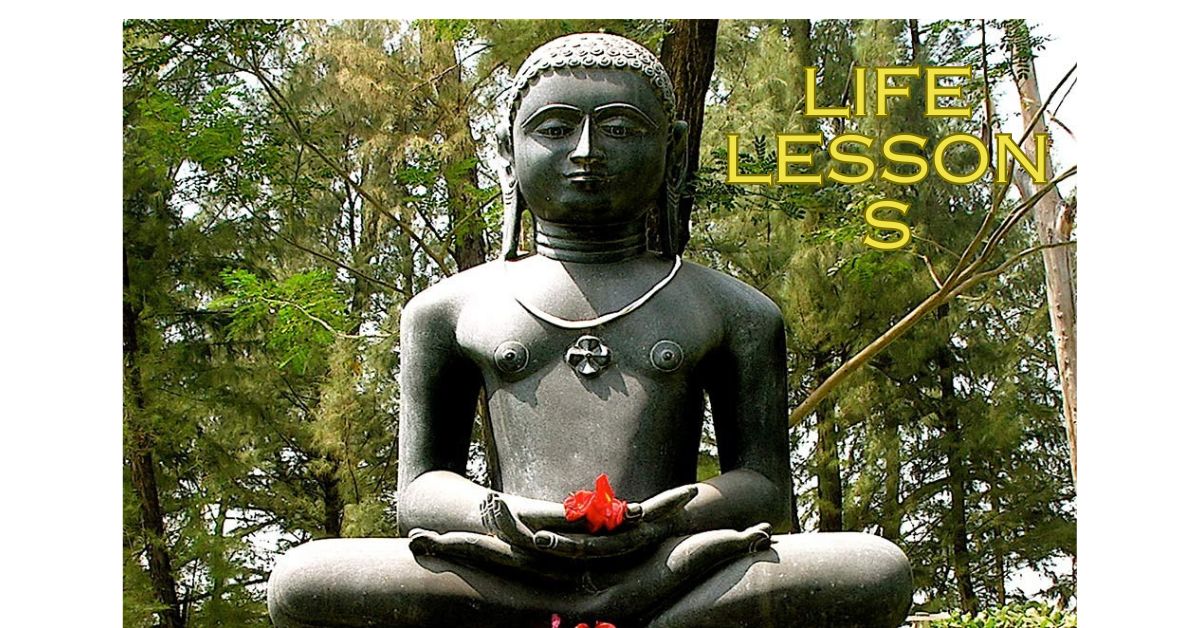Table of Contents
Introduction to Bhagwan Mahavir
Bhagwan Mahavir, also known as Vardhamana Mahavira, was an ancient Indian sage who lived around the 6th century BCE. He was the 24th Tirthankara in Jainism and is revered for his teachings on non-violence, truthfulness, and spiritual enlightenment. Even in 2024, his teachings hold immense significance and offer invaluable insights for navigating the complexities of modern life.
Ahimsa – Non-violence as a Key Teaching
Ahimsa, or non-violence, lies at the heart of Mahavir’s teachings. It goes beyond refraining from physical harm and extends to mental and emotional realms. In today’s world filled with conflicts and aggression, the principle of Ahimsa reminds us of the power of compassion and empathy in fostering harmony and peace.
Truthfulness – Satya
Truthfulness, or Satya, is another fundamental principle emphasized by Mahavir. In an age of misinformation and deceit, upholding truthfulness becomes crucial for maintaining integrity and trust in personal and professional relationships. Mahavir’s teachings inspire individuals to align their words with their actions, fostering transparency and authenticity.
Self-Discipline – Brahmacharya
Self-discipline, or Brahmacharya, is essential for restraining the impulses of the mind and cultivating inner strength. In today’s fast-paced world filled with distractions, practicing self-discipline helps individuals stay focused on their goals and values. By exercising control over desires and indulgences, one can lead a more balanced and purposeful life.
Equality – Samyak Darshan
Mahavir envisioned a society based on equality, where every individual is treated with respect and dignity. In a world grappling with social inequalities and discrimination, his teachings advocate for inclusivity and acceptance of diversity. By embracing the principle of Samyak Darshan, societies can strive towards creating a more just and equitable world.
Detachment – Aparigraha
Detachment from material possessions and desires is a central tenet of Mahavir’s teachings. In an era characterized by consumerism and excess, practicing Aparigraha fosters contentment and inner peace. By reducing attachment to worldly possessions, individuals can free themselves from the cycle of craving and find fulfillment in simpler joys of life.
Compassion – Karuna
Compassion, or Karuna, lies at the core of Mahavir’s teachings. It involves empathizing with the suffering of others and taking compassionate action to alleviate their pain. In a world confronted with humanitarian crises and social injustices, cultivating compassion becomes imperative for fostering empathy and solidarity among communities.
Forgiveness – Kshama
Forgiveness, or Kshama, is a virtue advocated by Mahavir for resolving conflicts and healing relationships. In a society marked by resentment and hostility, practicing forgiveness liberates individuals from the burden of grudges and resentments. By embracing Kshama, individuals can foster reconciliation and promote harmony in their personal and professional lives.
Simplicity – Anaya
Simplicity is celebrated in Mahavir’s teachings as a pathway to inner peace and spiritual enlightenment. In a world characterized by complexity and clutter, embracing simplicity brings clarity and tranquility to the mind. By simplifying their lives, individuals can focus on what truly matters and experience greater fulfillment and joy.
Service – Seva
Mahavir emphasized the importance of service to humanity as a means of selfless contribution to society. In an era marked by individualism and self-interest, engaging in acts of service fosters a sense of connection and belonging. By volunteering their time and resources, individuals can make a positive impact on the lives of others and contribute to the common good.
Environment Conservation – Prakriti
Mahavir’s teachings underscore the importance of environmental conservation and responsible stewardship of the planet. In an age of environmental degradation and climate change, his principles advocate for living in harmony with nature and minimizing harm to the environment. By adopting sustainable practices and promoting ecological awareness, individuals can contribute to the preservation of the planet for future generations.
Global Harmony – Lok Sanyam
Mahavir envisioned a world characterized by global harmony and peaceful coexistence among nations. In a world grappling with geopolitical tensions and conflicts, his teachings advocate for dialogue and cooperation as the pathways to resolving disputes and promoting mutual understanding. By embracing the principle of Lok Sanyam, nations can work towards building a more peaceful and prosperous world for all.
Leadership – Gurudev
Mahavir’s teachings offer insights into ethical leadership and the qualities of a visionary leader. In an era marked by leadership crises and ethical lapses, his principles inspire leaders to lead with integrity, humility, and compassion. By empowering and serving others, leaders can create inclusive and sustainable organizations that drive positive change in society.
Mindfulness – Anupreksha
Cultivating mindfulness according to Mahavir involves cultivating awareness and presence in every moment. In a world plagued by stress and anxiety, practicing mindfulness helps individuals find inner peace and clarity amidst chaos. By incorporating mindfulness practices such as meditation and self-reflection into their daily routines, individuals can enhance their overall well-being and live more fulfilling lives.
Conclusion
In conclusion, the timeless teachings of Bhagwan Mahavir offer invaluable guidance for navigating the complexities of modern life. From the principles of non-violence and truthfulness to compassion and service, his teachings provide a roadmap for living a meaningful and fulfilling life in 2024 and beyond. By embracing these teachings and integrating them into our daily lives, we can cultivate a more compassionate, harmonious, and enlightened society for generations to come.
FAQs (Frequently Asked Questions)
- How can I apply Mahavir’s teachings in my daily life?
- You can start by practicing non-violence, truthfulness, and compassion in your interactions with others. Reflect on Mahavir’s teachings and strive to embody his principles in your thoughts, words, and actions.
- What role does forgiveness play in Mahavir’s teachings?
- Forgiveness, according to Mahavir, is essential for healing relationships and fostering inner peace. By letting go of resentment and embracing forgiveness, individuals can experience emotional liberation and cultivate harmonious relationships.
- How can Mahavir’s teachings contribute to global peace and harmony?
- Mahavir’s emphasis on non-violence, equality, and compassion provides a blueprint for resolving conflicts and promoting cooperation among nations. By adhering to these principles, countries can work towards building a more peaceful and just world.
- What are some practical ways to practice mindfulness according to Mahavir?
- You can incorporate mindfulness practices such as meditation, deep breathing exercises, and mindful eating into your daily routine. By cultivating present-moment awareness and inner stillness, you can reduce stress and enhance your overall well-being.
- Why are Mahavir’s teachings relevant in 2024?
- Despite being ancient, Mahavir’s teachings offer timeless wisdom that remains relevant in today’s fast-paced and interconnected world. His principles of non-violence, truthfulness, and compassion provide ethical guidelines for navigating contemporary challenges and promoting social harmony.
Some Youtube Video: महावीर स्वामी जी के सबसे मधुर भजन ! Top 5 Mahavir Swami Bhajan | Mahavir Bhajan ! नॉनस्टॉप भजन



